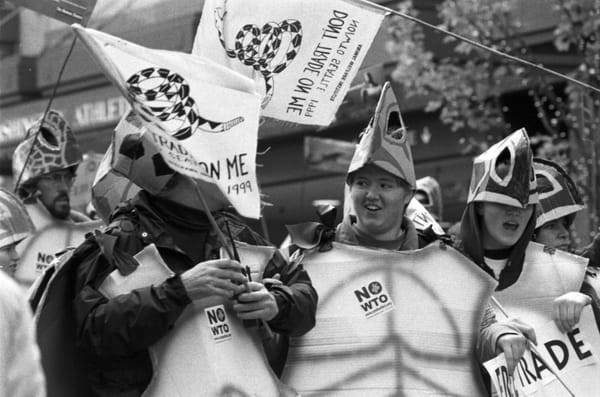One Week to Change the World:
An Oral History of the 1999 WTO Protests
By DW Gibson
Simon & Schuster, 368 pages, $19.99
Journalist DW Gibson decided to publish an oral history of the massive street protest against the World Trade Organization in Seattle in 1999 because he feared the event was in danger of falling into oblivion. “I feel like younger organizers don’t know about WTO, and even people involved in the Occupy and climate resistance movements rarely know about this,” he told The Seattle Times. The result is his new book, One Week to Change the World: An Oral History of the 1999 WTO Protests.
There is a simple reason why the Seattle protest is poorly remembered: It was a left-wing protest, and opposition to free trade has become a right-wing cause.
It isn’t just Donald Trump who thinks so. That assessment is shared by the people who were there in Seattle. Some say it with chagrin, others with mild amusement, but all of the activists in Gibson’s book seem to agree that Republicans now have a near monopoly on opposing globalization.
“The progressive critique of globalization, the WTO, it’s just been totally forgotten. Today, if you do criticize it, you’re quickly viewed as a Trumpist in some way,” says Victor Menotti, who in 1999 was program coordinator of the International Forum on Globalization and later became its executive director.
“Republicans talk about globalization. Democrats do as well but they’re not as overly critical because there’s still a portion of the Democratic Party and liberals in general that say, ‘Globalization has negative impacts but, overall, it’s good, so we have to learn how to work with it, enlarge it,’” says Nick Licata, a former Seattle city councilman who participated in the protests as a public official.
Menotti and Licata sound surprised. They shouldn’t be. Right-wing arguments—and, more curiously, right-wing money—were present in the anti-WTO movement from the beginning.
